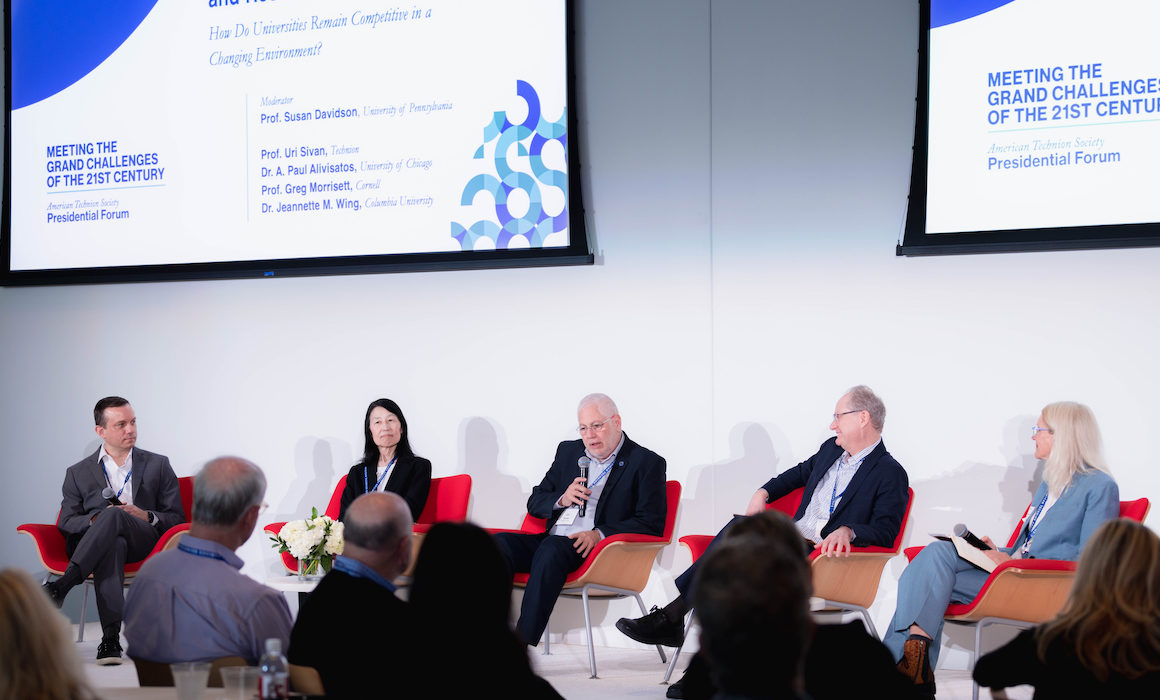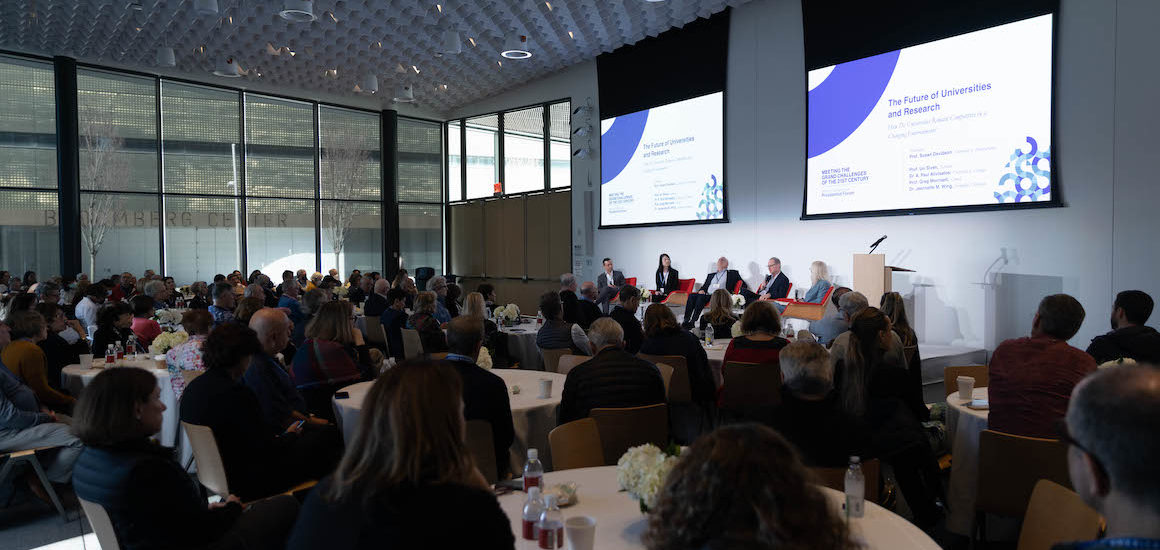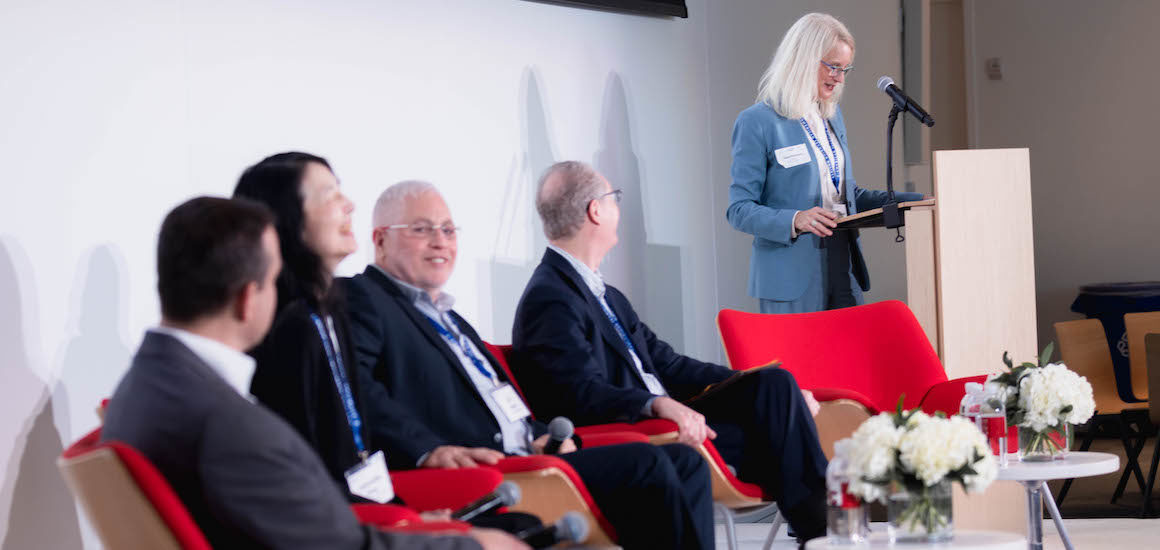Remember the days when students relied on their professor and textbook to provide all the information they needed to know? That was before a little invention known as the Internet. “Today we are no longer information providers, so what are we?,” asked Technion President Uri Sivan.
How do Universities Stay Competitive in a Changing Environment? — a question with no easy answer — was the topic of a lively panel discussion at the 2022 Presidential Forum featuring President Sivan and Professor Greg Morrisett, the Jack and Rilla Neafsey Dean and vice provost of Cornell Tech, and panelists from elite U.S. universities, moderated by Professor Susan Davidson, Weiss professor of Computer and Information Science at the University of Pennsylvania.
“We’re in a very special point in time as far as academic institutions are concerned,” said President Sivan. “We’ve been teaching the same way since the founding of the University of Bologna, (in 1088). But now it’s changing.”
For example, academia used to be the sole domain for fundamental research that was then applied by industry to develop new products and technologies. That border has disappeared as companies are increasingly conducting their own high-level, fundamental research. So, what is the role of universities for corporations? “Industry still needs academia,” said Professor Jeannette Wing, executive vice president for Research and professor of Computer Science at Columbia University. “Academia produces the talent, and more importantly is the only place where one can do long-term basic research.”
“There’s something in the air,” said Prof. Wing, and higher education is responding. Her university calls it “the fourth purpose,” loosely translated as a shift from knowledge to action. By way of analogy, she explained: “We have a great medical school that takes your basic science and immediately translates it into helping patients. Why can’t the rest of the university act that way and be more impactful?”
For Professor Paul Alivisatos, president of the University of Chicago, the shift is one of engagement. “If you look at our universities, they’re historically built around quads,” symbolically cloistering ideas inside the proverbial Ivory Tower. “But if you explore the geography of universities today, you can’t find their boundaries.” Foundations, community organizations, and other parts of society dot the side streets, intermingling with the university. “They’re inside and they’re changing us and we’re interacting with that,” he said.
With the rise of fake news eating away at public trust, Prof. Morrisett said engagement is a question of survival. “Universities have to engage in part for self-preservation,” he said. “If society continues to have the erosion of trust, they won’t give us the privilege to educate unless we are giving back. Universities are adapting to that to survive.”
The Jacobs Technion-Cornell Institute and the Technion have a leg up when it comes to engaging with society. Morrison noted that the Institute’s mission from the start was to help New York City become a high-tech startup hub. And since the Technion was founded before the State of Israel, its work has always been in support of the nation. Societal outreach “is part of the university’s DNA,” President Uri Sivan said. “We don’t have to change our DNA, we have to change our focus.”
To that end, President Sivan talked about boosting the universities ties with industry —Doral Energy Tech-Ventures and software giant PTC recently invested in projects on campus. He also revealed plans to establish a small humanities department. “The real value of a university education is giving our students a very broad perspective,” he said. “Their learning is not going to end when they graduate.”
Change was brewing and accelerated with the pandemic. Universities now need to re-examine not only how to use digital technology better but how to best use personal encounter times. These questions “occupy us,” said President Sivan. The Technion expanded its “Advancement of Teaching” unit to figure out solutions. “We are facing the same challenges. This is why it is so important to talk together.”




